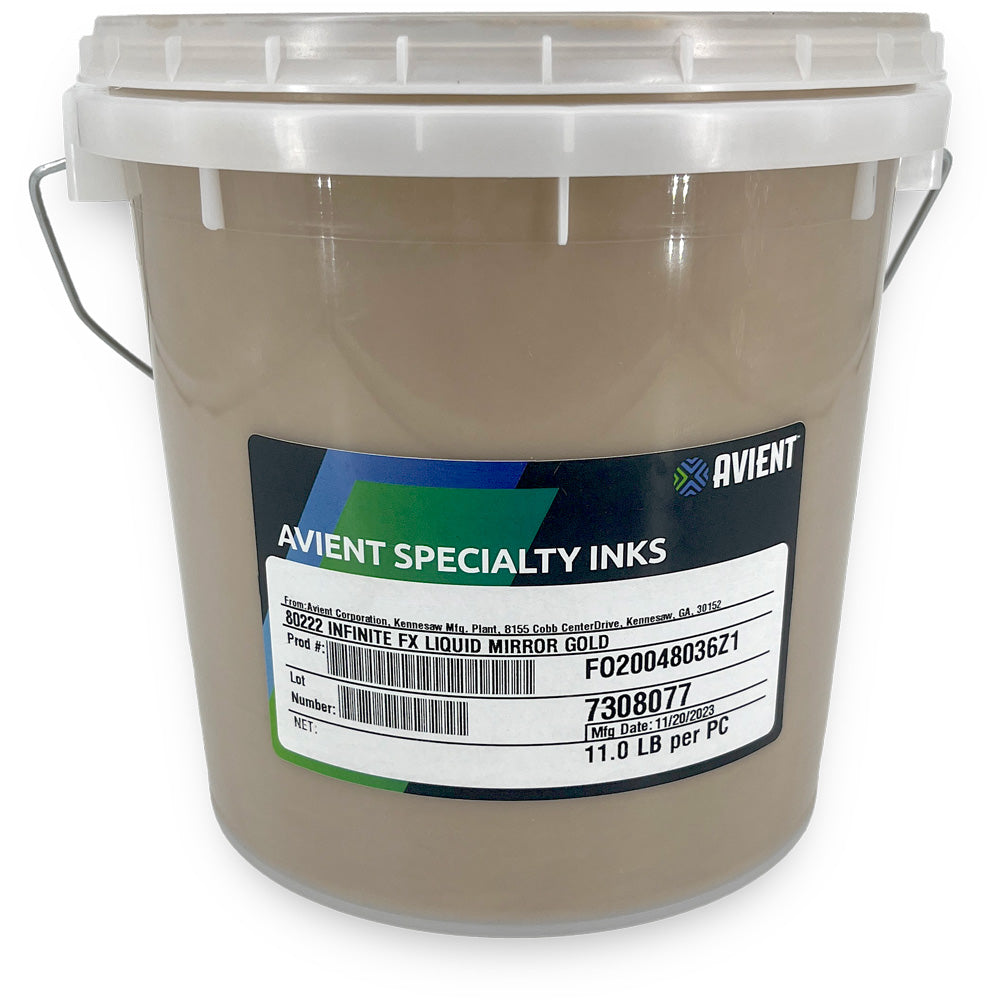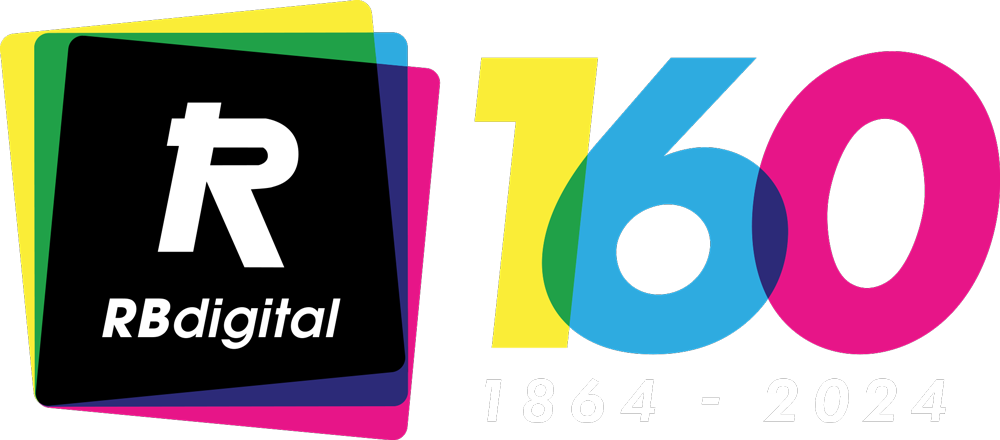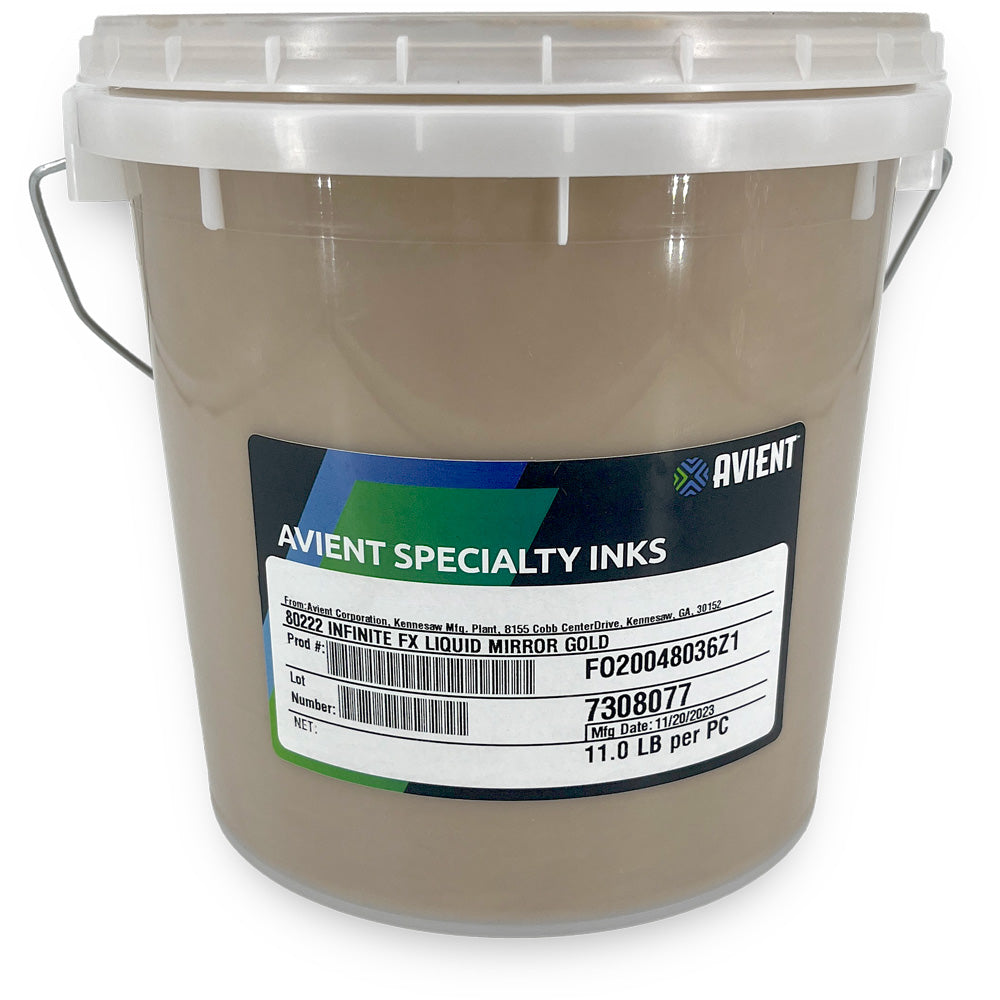
Additional Information
- Excellent adhesion to fabrics, and stretch properties
- Super-shine, silver chrome or gilded gold effect with smooth surface
- Ready-for-use or tintable
Fabric Types
- 100% cotton, blends, some synthetics
Mesh
- Counts: 86-160 t/in (34-62 t/cm)
- Tension: 25-35 n/cm
Squeegee
- Durometer: 60/90/60, 60-70
- Edge: Square, Sharp
- Stroke: Hard flood, Medium stroke
- *Do not use excess squeegee pressure
Non-Phthalate Stencil
- Direct: 2 over 2
- Off Contact: 1/16” (.2cm)
- Emulsion Over Mesh: 15-20%
Flash & Cure Temperatures
- Flash: 220°F (105°C)
- Cure: 270°F (132°C) Entire Ink Film
Pigment Loading
- up to 5% Wilflex PC
- up to 10% Wilflex EQ
- up to 15% Wilflex MX/RIO
- up to 10% Rutland C3 Boosters
Epic Additives
- N/A
- *All percentages listed at % by weight
Shipping & Storage
- 65-90°F (18-32°C)
- Avoid direct sunlight.
- Use within one year of receipt
Clean Up
- Ink degradent or press wash
- Stir inks before printing
- Use consistent, high-tensioned screen mesh to optimize performance properties
- For best results, use recommended mesh counts and print-flash-print
- Print direct to fabric or over a flashed-dried base plate. Use a suitable underbase when printing on garments prone to bleed
- Tintable with plastisol colorants. See Pigment Loading section for suggested tinting percentages. Adjust the % colorant added based on the strength of the colorants and color saturation desired
- Print liquid metallics in last position or flash after each print if using multiple screens
- Metallics reflect infrared heat and a forced air dryer is recommended for curing. If using an electric oven, extend dwell time to achieve proper cure
- Liquid Metallics may tarnish (turn gray) when exposed to detergent or water that contains bleaching or whitening agent. For best care, hand wash or machine wash on cold cycle with garment inside-out using a phosphate free detergent, then air or line dry. Label garments with suggested wash instructions
- Stir plastisols before printing.
- Do not dry clean, bleach or iron printed area.
- Perform fusion tests before production. Failure to cure ink properly can result in poor wash fastness, inferior adhesion and unacceptable durability. Gel and cure temperatures for ink should be measured using a Thermoprobe device placed directly in the wet ink film and verified on the substrate(s) and equipment to be used for production.
- It is the responsibility of the printer to determine that the correct ink has been selected for a specific substrate and the application processes meet the printer’s customer standards or specifications.
- Curing is the responsibility of each printer to confirm that the print is fully cured. PolyOne’s cure recommendations are not a guarantee or warranty, but merely suggested starting points for curing evaluations as explained above.
- When printing on garments that contain certain dyes, you must pre-test for the potential ghosting. Please refer to our website for more information on this issue.
- Wilflex products have been carefully designed to perform within a given viscosity range, and any dramatic change in viscosity is probable to result in a change in printing characteristics
- NON-CONTAMINATION OF EPIC INKS: Do not mix EPIC inks with inks, additives or extenders from other companies. All buckets, palette knives, stirring apparatus, squeegees, flood bars and screens must be cleaned properly and free of phthalates and pvc containing inks. Non-phthalate emulsions and pallet adhesives must be used. Failure to follow these precautions may cause phthalate contamination in violation of consumer protection laws and regulations.
- Any application not referred in this product information bulletin should be pre-tested or consultation sought with Wilflex Technical Services Department prior to printing.

